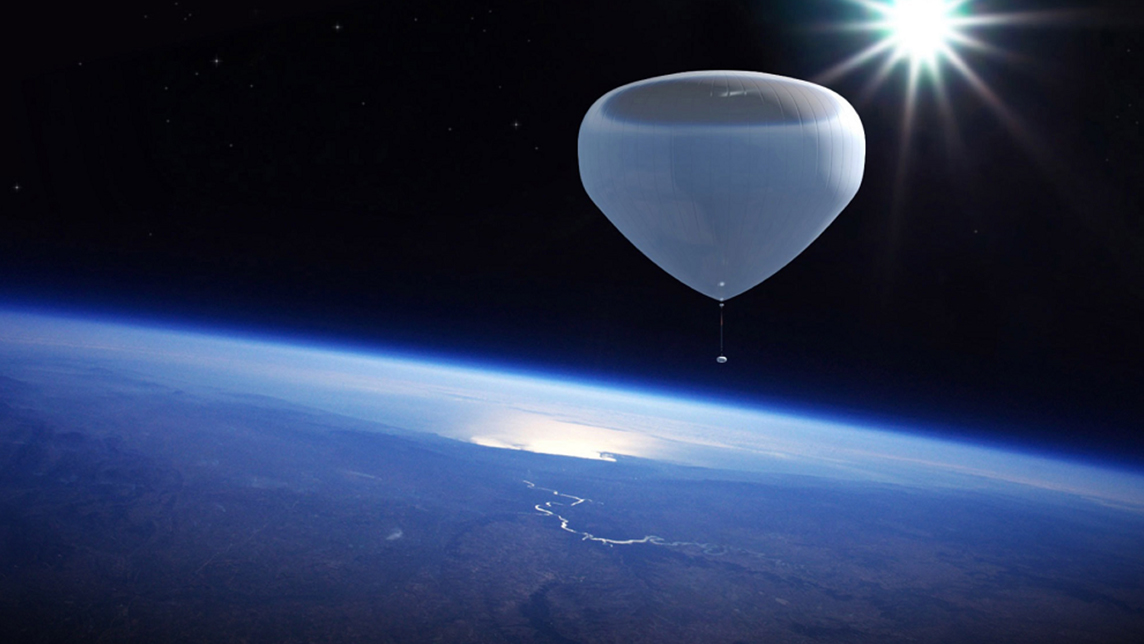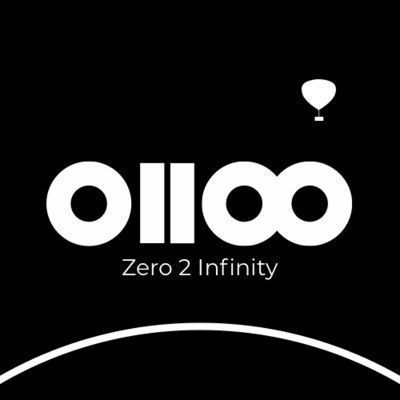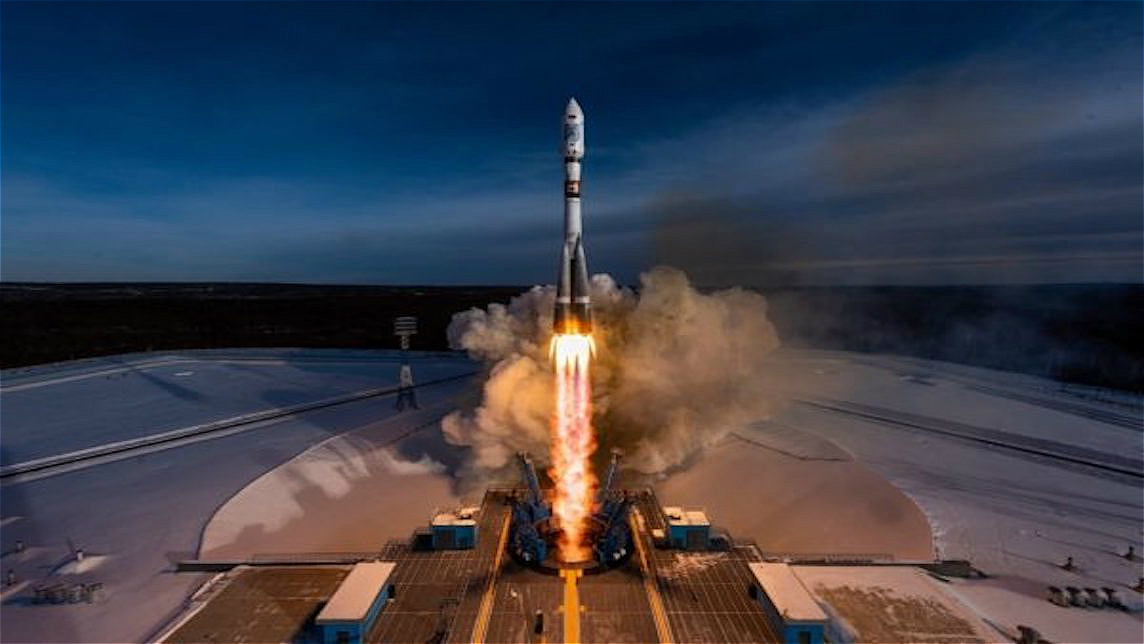“We are at the forefront of the internationalization of the new space phenomenon,” said Izan Peris Marti, Head of Product at Spanish space startup Zero 2 Infinity at the 2019 edition of 4YFN.
The aeronautical engineer from Europe's only private space tech company using balloon technology made this bold statement to CompassList on the huge economic potential offered by today's new space race and how his company's product range - including the Elevate balloon that Peris is personally responsible for - is tailored to meet that demand. Peris' assertion is backed up by his company's more than €950m in Letters of Interest received for one product still undergoing late-stage testing.
With American companies like SpaceX and Blue Origin setting the scene for imminent space tourism, another lucrative space revolution is already well underway - launching small satellites and testing equipment in near space, from 20–100 km above sea level. The estimated value of the market for global space services in 2025 will be US$27.18 bn, more than triple the value in 2017, with more than 11,600 small satellites expected to be launched by 2030.
“The space sector was closed off for decades but now that billionaires have come in, the sector has opened up commercially and is undergoing a revolution,” Peris said. “Thanks to the miniaturization of the sector, smaller satellites don't require large rockets to launch them, but the rocket sector has not adapted adequately to meet it.” This has meant that smaller satellites still have to be launched from larger rockets as an additional load and haven't enjoyed services like being able to choose a launch day.
Located in the Barcelona satellite town of Barberà del Vallès, Zero 2 Infinity was established in 2009 by José Mariano López-Urdiales, a former Boeing systems engineer and now CEO, and has a team of 15, mostly engineers. The founder was inspired to create his company after his father, an astronomer, used balloons to transport telescopes into the atmosphere.
Balloons, not rockets
Urdiales wondered why balloon technology was not being used for commercial purposes and saw a gap in the market. His first endeavor was to use balloons to view space from outside of the troposphere, at over 10 km above Earth. Today, Zero 2 Infinity seeks to fill the market gaps with its Elevate balloons to transport small satellites and equipment to the stratosphere and soon-to-be-launched Bloostar hybrid balloons to place small satellites into orbit.
“With our balloon solution, Elevate, we are serving a multi-bn euro market that, as yet, has no vehicle able to serve it adequately in this environment and companies are literally waiting for transportation solutions. We thus act as a facilitator for companies to develop their systems requiring near space testing,” Peris said.
Elevate's technology allows it to reach near space, in this case up to 40 km above Earth, transporting recoverable payloads of between one and 100 kg for up to 24 hours for multiple purposes, including new technology demonstrations and hardware validation. Its payloads can transport and test antennae, solar panels, cameras, telecoms systems, or any equipment that will later travel in satellites or other high altitude platforms. It can also perform weather measurements and remote sensing as well as drop tests of prototypes.
Airbus, Thales Alenia Space and Altran are some of the major companies that have used Elevate to test technology in near space but Zero 2 Infinity has also found success in another more publicly eye-catching area - marketing and PR stunts. Earlier this year, the company launched Elevate 30 km into the stratosphere at the start of the 2019 edition of 4YFN. This was shown at the event in a documentary, "4YFN to the Stratosphere: Elevate Your Future". Shortly before that, Elevate was used by toy-maker Mattel to launch a Barbie doll into space for the first time.
“Our balloons are quite unique in terms of technical requirements. They are basically halfway between aviation and spatial technology, so we need to work with technology from both spheres and no supplier can provide this,” Peris said. “Although we use commercial components to build our system, all the technology we are using is developed by ourselves”.
Elevate consists of a single-use balloon 'envelope' made of polyethylene, inflated by helium, that extends up to 30 meters in length and is attached to a payload in a gondola using Zero 2 Infinity's STRATOS technology. Following launch, Elevate floats at a typical altitude of 18–22 km when the technology separates the balloon from the payload and both descend to earth to be recovered.

10x shorter lead time
At present, the company charges around €10,000 per kilo of payload, with the price of launches ranging “from tens of thousands to hundreds of thousands of euros”. The company rents facilities at four different Spanish airfields, including Villacarillo in Andalusia and the European “Stratoport”, also known as the Air Traffic Laboratory for Advanced unmanned Systems, or ATLAS. The company conducted 12 launches in 2018. Peris says that demand brings clients from all over the world to its Spanish launch sites that also have optimal weather conditions allowing year-round launches.
“We are expanding Elevate's capacity and the number of flights we can launch in a year. Due to demand, the lead times for balloon launches are very short and we can go from definition of a solution to flight in a number of weeks,” Peris said. “With public agencies or space agencies it takes two to three years, so we are cutting down the times tenfold,” he added.
Peris also spoke about Zero 2 Infinity's even more popular Bloostar, capable of launching satellites into orbit, a far more complex operation than near space launches. Bloostar is based on the rockoon concept, namely a rocket that flies to the stratosphere with a balloon and ignites after passing 99% of the atmosphere. There, it launches its payload into low-earth orbit.
Scheduled to begin commercial operations in 2020, Bioostar has won for the company an equivalent of €952.9m in Letters of Interest to date. They pre-qualify Zero 2 Infinity as a service provider without any proposal yet in place, and come from 10 companies worldwide building constellations of satellites in Low Earth Orbit (LEO), for multiple launches in the space of two to three years. One of the companies, Bluefield, said the quoted price of about €3m per launch, including five satellites, was “highly competitive.”
Bloostar has developed its comparatively low-cost and environmentally sound technology in collaboration with CATEC, the Advanced Center of Aerospace Technology under the Andalusian Foundation for Aerospace Technology (FADA). It is very different to traditional rockets used by other companies in the sector. Its combustion chamber is 3D printed and the technology also uses AI and neural networks to improve refrigeration.
“Bloostar is specialized in light satellites and brings flexibility to the sector; thanks to its balloon we get the altitude required, and with the ignition of its motor, then it is easy to gain speed with far less aerodynamic resistance than a ground-based launcher,” Peris said. "The technology's reduced dynamic vibrations means it can save on structural mass and thus carry larger instruments than conventional launchers. It is also more environmentally friendly as almost all emissions occur outside the atmosphere."
Space tourism
Peris also said that Zero 2 Infinity's technology is highly scalable because, although the balloons might differ in size according to the mass they need to carry, the mechanical systems are the same across all configurations allowing “quick replication.”
Zero 2 Infinity has another sector it plans to enter, space tourism. Predicted to be worth €23bn in 2030, it is the market segment that has given the industry the most visibility in terms of protagonists such as Elon Musk.
“Taking humans into space as tourists requires overcoming a lot of regulation and bureaucracy but we intend to be part of the sector,” said Peris. “Apart from generating hundreds of millions of euros, it was also the reason the company started in the first place.”
Unlike other players, Zero 2 Infinity's space tourism product is also based on balloon technology. It has developed pressurized pods, called Bloon, that float 36 km above earth suspended below a balloon. Each pod can carry four passengers and two crew “in a calm and tranquil environment” on trips lasting four to five hours, and, although it still hasn't yet finalized when the first trip will take place, that could be as early as 2020.
The plan is for launches from all over the world to experience different views of Earth, and at a cost of €110,000 per person per trip, will be significantly more affordable than other space tourism technologies.
Peris himself was previously Systems Engineer at the Space Transportation Group at the German Aerospace Center, and was brought onboard in 2017 to head up the Elevate team. He also co-founded Disrupt Space, the first space-tech innovation hub in Europe, based in Berlin, and had dreamed of working on space travel since being a child.
To date, Zero 2 Infinity has received a total of €6.2m in funding, most recently in 2018, raising €1.2m in crowdfunding on the Crowdcube platform. Prior to this, it had raised €5m in three previous funding rounds, including a Series A in 2015, with investors including bank VC Caixa Capital Risc, the EU Executive Agency for SMEs, EASME, and private investors Ultramagic Balloons and Alfonso Villanueva.













